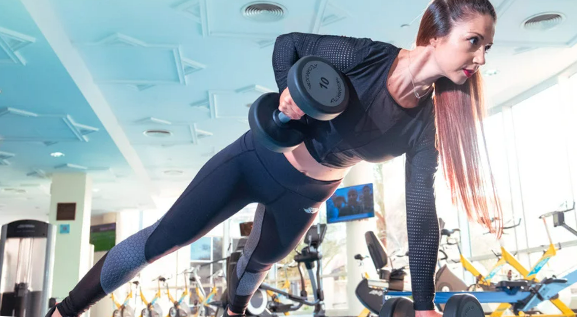
We are a reader-supported education publication. When you buy through links on our site, we may earn an affiliate commission to help us keep providing content.
We all know health is important. It gets drilled into our brains from a young age – we should eat healthily, get our exercise, eat sweets only in moderation, the list goes on. Did you know there’s a correlation between our studies and staying fit, though? It’s true, and it makes perfect sense once you have all the information.
De-stress
Learning can be stressful, especially in high school and college. Whatever stage of life you’re in, whether you’re on a quest for your life’s purpose or balancing your work, social, and educational life, exercise can help. Physical activity boosts dopamine in your brain and gives you all of those feel-good chemicals you need to de-stress.
You might feel like you don’t have any time to work out if you’re busy like most students are. However, it doesn’t have to be a strenuous activity or a marathon. Integrate some exercise into one of the daily activities you already have. Opt to take the stairs instead of the elevator. Encourage your friends to go on walks with you or jog around the school or a new town.
Mental Health
Exercise can have a considerable impact on your mental health. Working out can help with your test anxiety. Cool, huh? Anxiety is common among high-school and college-age students. There can be so much pressure from studies, extracurricular activities, and parents. It can become a little overwhelming.
Studies have shown that exercise can reduce anxiety symptoms. It reroutes the brain’s circuits and reduces muscle tension. In situations where anxiety generally occurs, your brain will offer an alternative outcome. Aerobic exercise produces endorphins in the brain that aid in symptoms of depression.
Memory

Have you ever read all day and then not remember anything you read about once you closed your book? That’s because your brain isn’t retaining the information. Physical activity can boost memory recall and improve short-term focus and long-term memory. The part of the brain responsible for verbal memory, the hippocampus, grows in size due to routine physical activity. One singular workout can increase your long-term memory by around 10%.
Aerobic activity significantly improves your memory recall and episodic memory. Episodic memory is a collection of memories that you can re-experience. It relies on a special kind of conscious awareness called autonoetic (self-knowing) awareness. This boosts your memory of stuff you’ve already encountered or learned about.
Creativity
Creative minds are sought after in the job market. Being creative means thinking outside the box and offering solutions from a different perspective when issues arise. Creativity also contributes to areas of art and science where generating ideas is a crucial part of the job.
There is a connection between exercise and convergent and divergent thinking. Divergent thinking develops multiple solutions at once, while convergent focuses on one singular answer.
Both of these types of thinking contribute to a creative mind. Being creative can help you in more areas than just writing term papers. It’s exceedingly important not only in your studies but also in your professional life.
The Mental Advantages of Staying Fit
The advantages of fitness are not just limited to your academics. Exercise can boost your productivity, improve your mood, boost your immune system, and benefit your overall health. Incorporating exercise into your routine, whether daily or weekly, will drastically improve all areas of your life.









